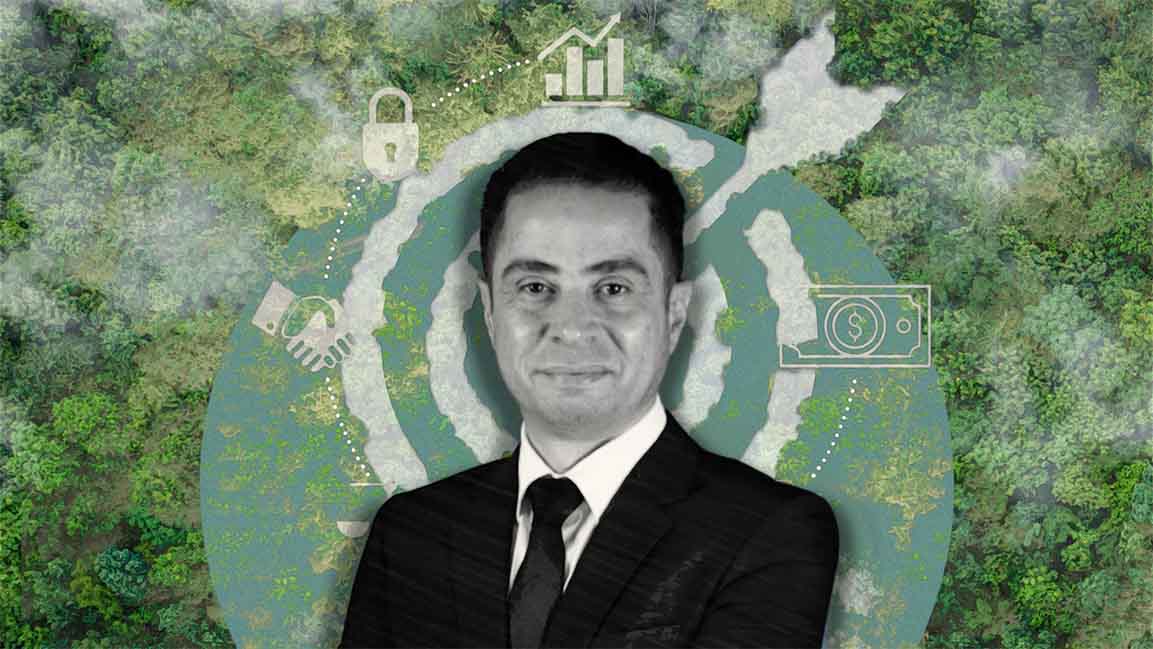- | 2:00 pm
Decisive action in business practices can mitigate climate change
Climate change is the defining issue of our generation, says Microsoft’s Sherif Tawfik

Now accepting applications for Fast Company Middle East’s Best Workplaces For Women 2023. Click here to register.
As the severity of climate-related disasters increases, the economic repercussions on communities and businesses also escalate. Despite the obligation to address the crisis by reducing emissions in their operations and supply chains, companies have shown limited progress in systematically measuring and decreasing their emissions over the last year.
As per a study, only 14% of companies report reducing emissions in line with their ambitions over the past five years, citing difficult economic conditions and capital constraints as challenges to their reduction efforts. “While it is disheartening to learn, we must not let this discourage us in the fight against climate change,” says Sherif Tawfik, Chief Sustainability Commercial Officer – Central, Southeast Europe, Middle East, and Africa at Microsoft.
Tawfik emphasizes their commitment to addressing climate change through swift, collective action, and technical innovation. He says, “We firmly believe that climate change is the defining issue of our generation.”
TRANSFORMATIVE CHANGES
Microsoft initiated a sustainability transformation in 2009. Committed to being carbon-negative, water-positive, and zero waste by 2030, the tech giant also aims to remove all emitted carbon since 1975 by 2050. Tawfik underscores the importance of decisive action and transformative changes, emphasizing Microsoft’s role in developing sustainable technologies for global climate goals. “Decisive action and transformative changes in business practices, alongside broader industry efforts, can significantly contribute to mitigating climate change impacts.”
Most recently, Microsoft partnered with UNFCCC to leverage AI and advanced data technology for tracking global carbon emissions, which is crucial for several reasons. Under the agreement, Microsoft will build a new platform to provide digital support to the UNFCCC’s Enhanced Transparency Framework. This platform will enable advanced global climate data analysis by creating a new global climate data hub and an AI-powered data analytics platform. The UNFCCC and its member states will be able to report and validate progress toward carbon reduction targets more efficiently. Secondly, they can also plan carbon reduction strategies using simulations, benchmarks, and data visualizations to help inform targeted actions, saving time and money while enhancing transparency and accountability.
GOING BEYOND CSR-LED SUSTAINABILITY
Yet challenges exist. As the global focus on environmental responsibility intensifies, companies grapple with the imperative to address and mitigate their environmental impact. From identifying the starting point in reducing environmental footprints to establishing clear, measurable goals aligned with recognized standards, businesses encounter multifaceted hurdles on their sustainability journey.
“Sustainability poses significant challenges, and for businesses especially, it can be overwhelming to determine where to begin,” says Tawfik.
He suggests identifying and planning to reduce their environmental footprint is a crucial first step. This should be followed up by determining and setting clear, measurable goals aligned with national and internationally recognized standards. He adds that organizations should also focus on collaboration and knowledge-sharing within industries to help them address common challenges they may face.
Overall, he says that ensuring sustainability goes beyond a CSR initiative requires a cultural shift within organizations wherein every individual embraces sustainability as a business imperative rather than a peripheral activity. “This means integrating sustainability into all aspects of business operations, from decision-making and setting clear sustainability goals to measuring and routinely reporting progress.”
PURSUING A COMPREHENSIVE STRATEGY
According to Tawfik, encouraging companies to embrace sustainable practices necessitates a comprehensive strategy. Governments play a pivotal role by incentivizing sustainability through policies and regulations, while consumers drive demand for eco-friendly products and services.
Tawfik highlights Microsoft’s diverse initiatives in pursuit of sustainable development, including investments in renewable energy sources, promoting digital skills supporting a green economy, and collaborations with local governments and businesses for sustainable practices and technologies. In the Middle East, seven prominent customers, such as Emirates NBD, Dubai Islamic Bank, e& enterprise, and the UAE federal government, utilize Microsoft Sustainability Manager and Cloud for Sustainability to benchmark their environmental footprint. The Microsoft EMEA Energy Core is actively developing AI solutions empowering regional energy companies to manage and reduce emissions. The expansion of the AI for Good Research Lab into Egypt and collaboration with Planet Labs PBC show promising progress in accelerating climate adaptation solutions in the Middle East and North Africa.
Collaboration between businesses and NGOs is highlighted as a catalyst for developing industry-wide standards, fostering a collective commitment to sustainability. Transparent reporting on environmental and social impacts is essential to create accountability and inspire positive change within companies.
Sustainability is a collective duty, he says. “Sustainability is not just the responsibility of a single corporation or government.”































